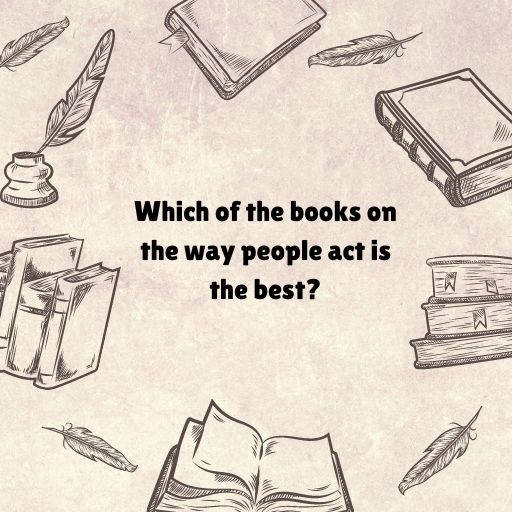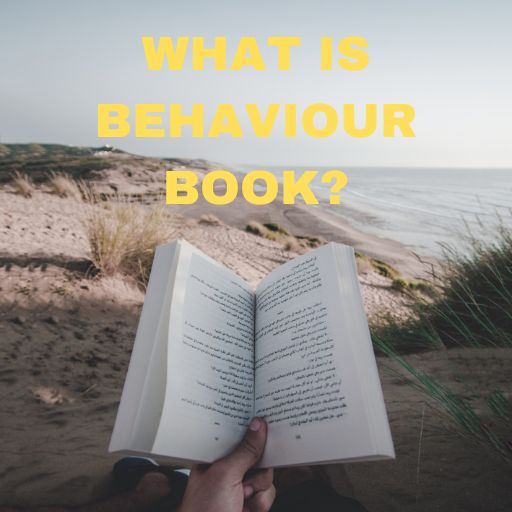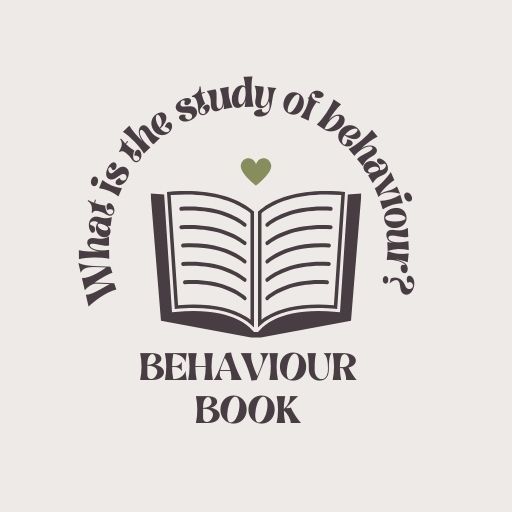Since there are numerous well-regarded books about human behavior, the choice comes down to your personal tastes and the learning objectives you have for the book. Here are some well-liked options:
1. Robert Cialdini’s book “Influence: The Psychology of Persuasion” delves on the principles of persuasion and their use in influencing human behavior.
2. “Thinking, Fast and Slow” by Nobel a winner Daniel Kahneman explores the two schools of thought that influence our ability to come to decisions, offering insights on cognitive biases and human behavior.
3. Yuval Noah Harare’s “Sapiens: A Brief History of Humankind” provides an intriguing look at how humans have developed, yet not being solely focused on human behavior.
Is it feasible for us to study human behavior?

These books provide insightful points of view and various perspectives on human behavior. You can select the one that most closely fits your objectives and areas of interest in human behavior.
The captivating and diverse field of studying human behavior incorporates elements of biology, society, psychology, and anthropology [1]. There are various ways to investigate human behavior, such as doing video observations to broaden the scope of research studies or annotating activities with tools like The Observer XT[2]. Experiments on human behavior are seen to be effective and crucial for understanding the mind [3]. There are online programs and courses accessible for those who want to delve deeper into the study of human behavior. These themes include psychological theories, motivation, and emotion.
Which text about psychology is the best?
The best psychology books can be found in an array of sources, based upon the information supplied. “50 Great Myths of Popular Psychology: Shattering Widespread Misconceptions About Human Behavior” by Scott O. Lilienfeld, Steven Jay Lynn, John Ruscio, and Barry Beyerstein, “Obedience to Authority” by Stanley Milgram, “Consciousness and the Social Brain” by Michael S. A. Graziano, and “Words Can Change Your Brain” by Andrew B. Newberg1 have some of the finest psychology doing suggestion.
These ideas originate from a number excellent places, including Oxford Scholastica, Reedsy Discovery, Goodreads, and Four Minute Books1.
Where might I start researching about psychology?

Here are a couple recommendations to get you started if you’re new to psychology and want to read additional about the field:
Gillian Butler and Freda McManus’ “Psychology: A Very Short Introduction” offers a clear and approachable overview of psychology that covers its main subjects, ideas, and techniques.
James W. Kalat’s textbook “Introduction to Psychology” presents an in-depth review of the principles of psychology. It covers a wide range of subjects, such as social psychology, cognition, biological underpinnings of behavior, and research methodologies.
Viktor E. Frankl’s book “Man’s Search for Meaning” examines the psychological facets of human experiences within the framework of surviving the Holocaust, despite not being a conventional psychology textbook.
Why should I learn psychology?

Reading studying psychology has many benefits.
1. Self-awareness: Learning about psychology can improve your comprehension of your own ideas, feelings, and behaviors. It can help you see patterns and gain understanding of why you would behave a specific way, and promote personal development.
2. Empathizing with others: Psychology can give you important insights into how others behave, which can improve your ability to comprehend and relate to others. Your relationships, communication abilities, and social situational awareness can all be improved by having this understanding.
3. Critical thinking: By dissecting and assessing hypotheses, data, and research, psychology supports critical thinking. It can improve your critical thinking, assumption-challenging, and information-evaluating skills, all of which are beneficial for many facets of life.
4. Ability to solve problems: Psychology
What is the total number of subtypes in psychology?

Psychology has many areas or subfields that concentrate on various facets of behavior, thought, and emotion in humans. Among the main categories of psychology are:
1. Clinical psychology: The diagnosis and treatment of mental illnesses and psychological suffering are the primary objective of this field. Clinical psychologists assist people with psychological concerns and frequently operate in therapeutic settings.
2. Cognitive Psychology: This field of study examines psychological processes like language, perception, thought, memory, and problem-solving. It investigates the ways in which these processes effect thought and behavior.
3. Developmental Psychology: This field of research examines how people evolve over the course of their lives. It looks at how people change as they gain older and mature physically, cognitively, socially, and emotionally.




